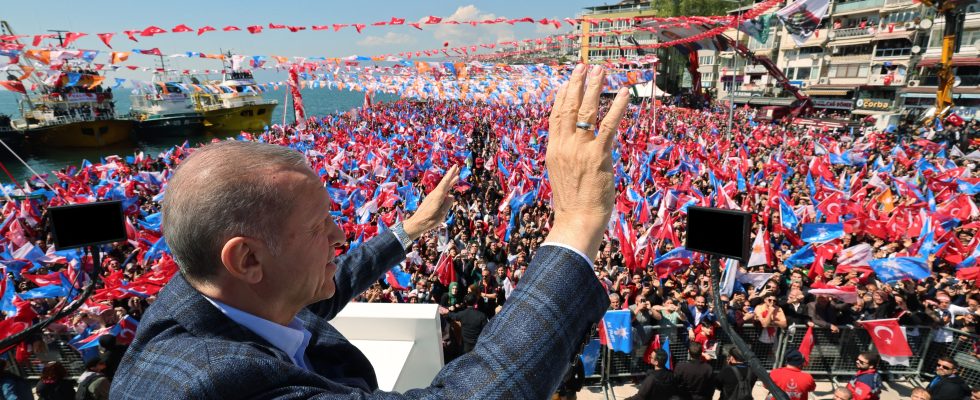The first two episodes of our story on the presidential election in Turkey can be found here:
EPISODE 1 – Almighty autocrat, candidate on the edge of the abyss
EPISODE 2 – The black scenarios of the presidential
Violent or peaceful, anticipating the transition of power in Ankara defies imagination. Just like the image of a Türkiye without Erdogan. But his televised discomfort of April 25 and the polls show it: the stay is no longer infallible, and the crash of its fall would be deafening. Much more than the setbacks of Donald Trump in the United States or those of Jair Bolsonaro in Brazil, a defeat for Erdogan would be a major setback for autocrats around the world. And a clear victory for democracy. “The day he loses the election, I put on my gas mask and go dancing in the streets, the Havva teacher finds herself dreaming from Istanbul. I know that the police will be there with their tear gas, but they don’t won’t stop me from singing that democracy has won.”
Beyond that, the hope of a democratic Turkey should not leave room for otherworldliness. “There would not be a 180 degree turn in Turkey overnight,” warns Karabekir Akkoyunlu. The coalition behind Kemal Kiliçdaroglu includes many nationalists, sometimes more to the right than Erdogan on certain social issues, in particular respect for minorities. The opposition has already planned to negotiate with Bashar al-Assad the expulsion of the 4 million Syrian refugees present on Turkish soil, with worrying chain reactions for Europe.
On the international scene, strategic continuity
Less conflictual, the relationship between our continent and Turkey will not be idyllic for all that. “The populist squabbles with other world leaders will stop, and Turkey will no doubt turn more towards the West, but, in substance, the changes will not be major, predicts Berk Esen, of Sabanci University in Istanbul. The positions of Turkey and the West have diverged too much in recent years on major issues, such as immigration, Cyprus, the Eastern Mediterranean, etc.”
A first simple, but highly symbolic, gesture will be to lift the Turkish veto on Sweden’s membership in NATO. But on Ukraine, Ankara will continue to stand halfway between Moscow and Kyiv, as economic ties are too deep – and much needed – with Russia. “Turkey remains an indispensable strategic partner, a bridge between East and West, underlines Anders Fogh Rasmussen, former Secretary General of NATO. Even if our fears are real and numerous vis-à-vis Ankara, we must pursue a critical dialogue with Turkey.”
Especially since a new Turkish government, regardless of its leanings, will have immense challenges to meet domestically. “On its own, the economic project promises to be astronomical for the new leaders, notes Sinan Ciddi, researcher at the Foundation for Defense of Democracies. Turkey will have to beg international institutions for help, even beyond the earthquake damage”, estimated at more than 100 billion dollars. Putting a brake on crazy inflation and restoring a certain budgetary orthodoxy will have to be the two priorities of the Turkish leaders.
But before that, the biggest challenge will undoubtedly be to agree between winners. To rise to power, the opposition is rallying around an “everything but Erdogan” project, but is struggling to find compromises beyond that. “At the internal level, tensions will certainly decrease, the country will be liberalized, and it is certain that the prisons will be emptied, thinks Bayram Balci. Then, the Kurdish question is one of the subjects which is likely to anger and divide the victors. For now, they are following a common goal – the departure of Erdogan – but, if we go into details, their project may be derailed.”
Crying robbery of the elections, denouncing a foreign plot and leaving power. Then wait for his enemies to tear themselves apart, before returning to grace. Erdogan’s coup de force may not be the one we think…
